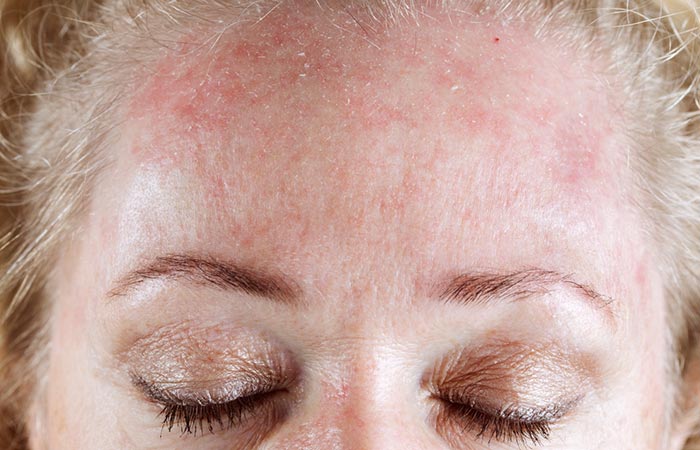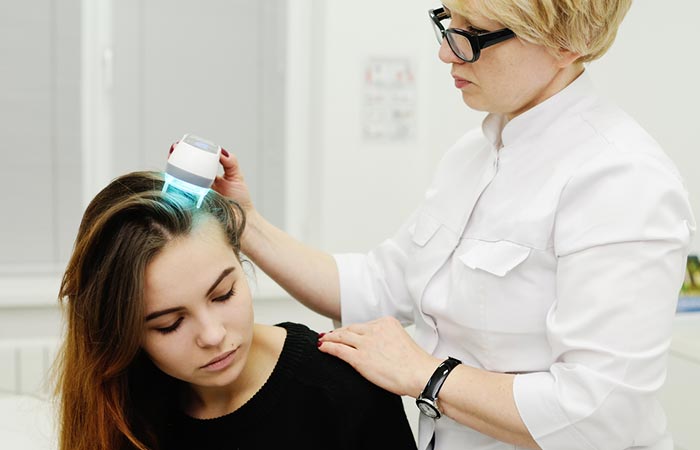Psoriasis Vs Dandruff: What Do You Have?
Being afflicted by any skin or hair condition can be utterly distressing for anyone. I mean, who would like to see their scalp flaking and constantly feeling itchy? And if that wasn’t enough, you also feel conscious and embarrassed about the way it looks. Well, if it’s dandruff that you have, then you can rest easy as it’s not a serious medical condition and can be treated fairly easily. However, psoriasis is a more serious chronic condition that can be quite hard to deal with and does not currently have a cure. Since these two conditions have quite similar symptoms, it’s important that you distinguish between the two to get the correct treatment.
How To Know For Sure If You Have Dandruff Or Psoriasis
If you have the urge to run to the nearest dermatologist at the slightest sign of a flaky scalp, then I need to stop you right in your tracks. There is no need to fret just yet! What you do need to do is closely inspect your symptoms to know for sure if you have dandruff or psoriasis.
Symptoms
Dandruff:
- Dry patches on your scalp
- Flakes of skin falling off your scalp that can be anything from small and white to large, oily, and yellow.
- Itching
Psoriasis:
- Dry patches of skin that are red and covered in thick, silvery scales. These could appear anywhere on your scalp, hairline, neck, around your ears, elbows, palms, legs, feet, or back.
- Cracked skin that may bleed.
- Itching, burning or soreness.
- You could also be experiencing swollen and stiff joints.
Causes
Though dandruff and psoriasis look very similar, they are two wildly different conditions that are caused by very different factors. So, let’s take a closer look…
Dandruff:
- Certain hair care products like shampoos, dyes, hair sprays, creams, or gels can irritate your scalp and lead to flaking, itching, and redness. This is called contact dermatitis.
- Not shampooing your hair regularly can lead to oil buildup on your scalp that can then flake off with your skin.
- Generally, having a dry skin type.
- Being infected with a fungus called Malassezia that lives off of the oil on your scalp.
- Oversecretion of certain male hormones. This is also why dandruff is more common among men than women.
- Having a weak immune system that cannot fight off infections.
Psoriasis:
While you can pinpoint the causes of dandruff quite easily, the same can’t be done with psoriasis. Though we know that it is an immune system problem, the exact cause of why it occurs is still not clear. However, we do know how psoriasis develops.
Psoriasis is an autoimmune disease in which the antibodies (that are meant to heal wound or attack bacterial and viral infections) start attacking healthy tissues. This leads to an overproduction of healthy skin cells. Now, under normal circumstances, dead skin gradually flakes off from the outermost layer of your skin in microscopic fragments. But if you have psoriasis, the new and healthy skin cells rise to the surface before the older dead skin has had time to shed. Thus, the skin cells build up on the surface of your skin in thick, scaly patches that become itchy and red.
Now that you know what causes dandruff and psoriasis, it’s time we turned our attention towards treating them.
Treatment
Since dandruff is not a serious medical condition, you can treat it with products that are available over-the-counter or in local drugstores. However, psoriasis needs to be diagnosed by a dermatologist and treated with prescription medications.
Dandruff:
Normally, dandruff can be treated with a gentle shampoo as it’s just a matter of treating your too oily or too dry scalp skin. But if that doesn’t help, then you need to use shampoos that are specially formulated to control dandruff. Some ingredients that you need to look for in these shampoos are:
- Coal tar
- Zinc pyrithione
- Salicylic acid
- Ketoconazole
- Selenium sulfide
If you prefer using natural remedies, then tea tree oil is a great natural treatment for dandruff.
Psoriasis:
The treatment for psoriasis depends on its severity. It can range from topical ointments to biologic medication to steroid injections – all these need to be prescribed by a dermatologist.
Mild psoriasis is usually treated with topical creams that are meant to slow down the skin buildup and reduce inflammation, redness, and scaly patches. These usually include:
- Anthralin (Dritho-Scalp)
- Calcipotriene (Dovonex)
- Calcitriol (Vectical)
- Calcipotriene and betamethasone dipropionate (Taclonex)
- Tazarotene (Tazorac)
Moderate to severe psoriasis may require stronger medications that could include any of the following:
- Methotrexate (Trexall)
- Acitretin (Soriatane)
- Cyclosporine (Gengraf, Neoral, SandIMMUNE)
- Adalimumab (Humira)
- Certolizumab pegol (Cimzia)
- Golimumab (Simponi)
- Etanercept (Enbrel)
- Infliximab (Remicade)
UV light treatments are also pretty commonly used to control psoriasis patches and can be done yourself at home.
Though dandruff and psoriasis can cause distress to anyone afflicted by them, it is important to remember that they can be effectively treated and managed with just a little bit of effort. Hope this information helps you treat your scalp issues. If you have any suggestions or queries about these two conditions, just comment below to let us know.
Expert’s Answers For Readers’ Questions
Is dandruff a genetic disorder?
No, dandruff is not a genetic disorder.
Does psoriasis spread?
No, psoriasis is not contagious and it cannot spread from person to person by touching.
Is there any cure for psoriasis in homeopathy?
There is no complete cure for psoriasis in homeopathy or allopathy. However, there are a few homeopathy treatments that do reduce the symptoms of psoriasis, like hydrocotyle asiatica, sepia, arsenic, kalium sulph.
What does dandruff look like?
Dandruff can range from small, white flakes to big, yellow flakes.
Is psoriasis deadly?
Pustular and erythrodermic psoriasis are the rarest kinds of psoriasis that can potentially be fatal as they reduce the body’s ability to fight infections and control body temperature.
The post Psoriasis Vs Dandruff: What Do You Have? appeared first on STYLECRAZE.
from STYLECRAZE http://ift.tt/2I5ep9r







0 comments :
Post a Comment